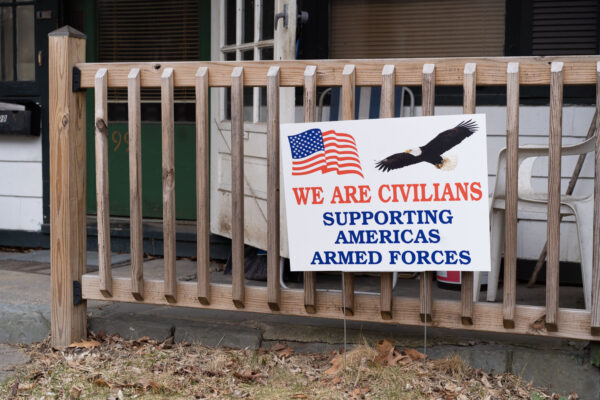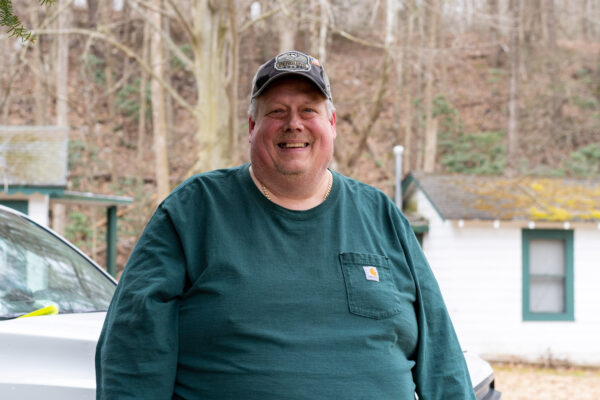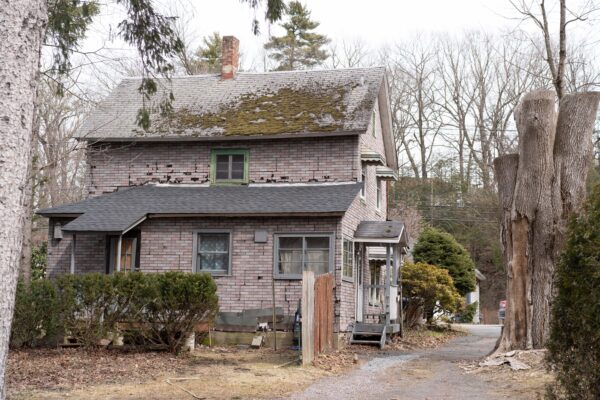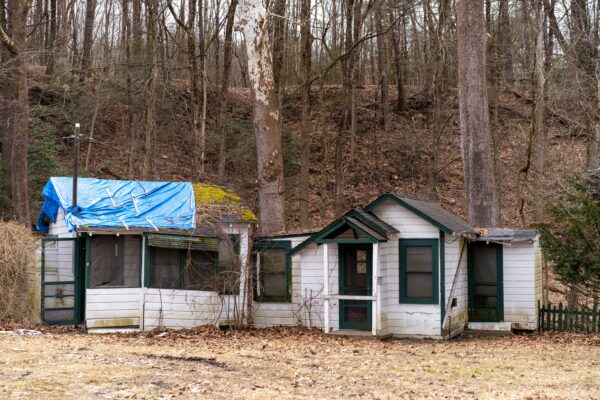After working at it for almost four years, Bill Whetsel’s vision of the first veteran housing in Orange County, New York, is about to come true.
Renovations on a newly purchased Port Jervis site just off Interstate 84 are to start in weeks, promising living spaces for 12 veterans.
“The community of Orange County is unbelievable and outstanding,” he told The Epoch Times. “We couldn’t get where we are without the community.”

Whetsel first got the idea of veteran housing from a Hudson Valley Veterans Task Force meeting in 2019.
He was shocked to hear at the meeting that there were homeless veterans in New York, and about two dozen were reported in Orange County.
Having grown up in a military family and served in the Air Force, Whetsel cared about fellow veterans and wanted to help.
His grandfather had worked as a nurse in France during World War II, his two uncles served in Vietnam, his father was in the Navy, and Whetsel served in the Air Force as an explosive weapon technician during the Cold War.

Whetsel also just retired from his job at the Department of Homeland Security, so he had time to help too.
A Self-Sustaining Model
Modeling veteran housing in nearby counties, Whetsel hatched a plan for a small veteran village in Orange County and formed Rumshock Veterans Foundation to push it through.
The nonprofit was named after his veteran grandfather.
Whetsel envisioned it to be a self-sustaining model designed specifically for veterans, with hydroponic farming, electronic waste recycling, and job training programs.
“Veterans trust veterans and hold each other accountable,” he said. “The goal is to get them to live here together, go start their own businesses, and get back into society.”
In 2020, his foundation was awarded a grant of $400,000 by the Dormitory Authority of the State of New York with the help of former state Sen. Jen Metzker.

He spent half the grant to buy a piece of property once used by a nursery near Clove Brook in Port Jervis, upon which he plans to build his veteran village.
Stanley Siegal, the city councilman-at-large and veteran liaison, and his wife, Sharon, helped Whetsel find the property and close the deal.
“It is a soothing, homey, and seclusive environment, which I think will help veterans get out of the dilemma they are in and the negative feelings they have,” Siegal told The Epoch Times.
Community Support
Whetsel got the city’s approval to renovate two old single-family houses on the property, and testing and removal of hazardous materials therein started in March.
When finished, the two houses will provide four bedrooms, kitchens, shared activity spaces, and a storefront for selling produce grown through hydroponic farming.

Then Whetsel plans to renovate eight small residences near the bank of the brook, which still needs to go through the planning board and city council.
Once up and running, the project will charge each veteran tenant about $1,100 every month, utilities included, he said.
Since 2019, the number of homeless veterans in the county has dropped to under ten, though it is hard to get an accurate count of the population, he said.
He said he would make the most out of the rest of the grant money, around $200,000, while seeking help from the nearby communities.

Local electric, carpentry, and plumber unions have promised to offer free or discounted labor, and the lumber union offers at least 30 percent off on materials, Whetsel said.
Another local company pledged to donate outdoor furniture to the future veteran village.
At the same time, Whetsel keeps fundraising and applying for federal grants.
“We’ll get it done,” he said. “I [believe in] myself, my family, and my community.”








